More than man’s best friend: Emotional support dog brings priceless comfort to Greenfield teen with PTSD
| Published: 04-05-2024 1:45 PM |
Zeal, a soulful-eyed chocolate lab, may well be “man’s best friend” to 15-year-old Rain Sanborn. But if all goes well, Zeal will also be a great comfort to the boy who suffered through years of trauma and anxiety brought on by a near-fatal ski accident.
Zeal, who just turned 2, joyfully prances around the Sanborn home in Greenfield with his birthday present, a stuffed toy shaped like a slice of birthday cake. He is a “career change” dog, who didn’t quite measure up to be an ADA-compliant service dog. As a puppy, Zeal was trampled on by a mastiff, and so he still barks at other dogs — a distraction for a “working” service dog.
But with a little more training, Zeal will learn how to come to Rain’s aid whenever Rain has waves of panic that sometimes leave him unable to speak, and wanting to flee to safety.
When Rain was 12, he struck a tree while downhill skiing — an accident that left him with eight broken bones — including two broken legs and a concussion. He was air-lifted to Baystate Medical Center in Springfield and spent many months recuperating. He was diagnosed as having Post Traumatic Stress Disorder episodes from that experience. Although the helmet he wore skiing saved his life, his hospitalizations have included Baystate Children’s Hospital and Spalding Rehab in Boston. His bones have healed, but the trauma hasn’t.
When anxious, “he becomes nonverbal,” says Rain’s father, Chris Sanborn. “His fear response is either a flight response. Or, he freezes.”
“It happens in school a lot,” adds Rain. “It’s made it hard to be in school.”
Rain said he’s been in several mental health programs. “I have been in three different schools in the past two years. And since then, I have been to so many appointments, getting treatment with loving and supportive therapists, doctors and others.”
During one of those PTSD episodes, Rain met K9 Frank, a therapy dog from the Greenfield Police Department, who seemed to make Rain feel better. Also, a therapy dog named Officer Mac, from the Montague Police Department, came to Rain’s aid one day at school.
Article continues after...
Yesterday's Most Read Articles
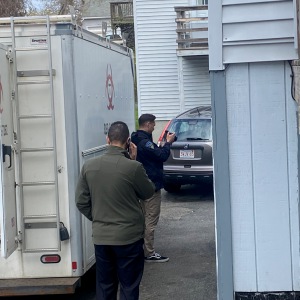 Authorities ID victim in Greenfield slaying
Authorities ID victim in Greenfield slaying
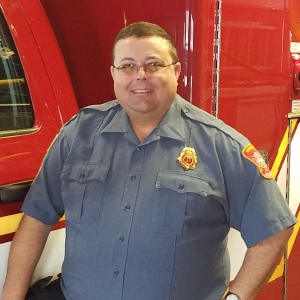 State records show Northfield EMS chief’s paramedic license suspended over failure to transport infant
State records show Northfield EMS chief’s paramedic license suspended over failure to transport infant
 Police report details grisly crime scene in Greenfield
Police report details grisly crime scene in Greenfield
 On The Ridge with Joe Judd: What time should you turkey hunt?
On The Ridge with Joe Judd: What time should you turkey hunt?
 ‘I have found great happiness’: The Rev. Timothy Campoli marks 50 years as Catholic priest
‘I have found great happiness’: The Rev. Timothy Campoli marks 50 years as Catholic priest
 Formed 25,000 years ago, Millers River a historic ‘jewel’
Formed 25,000 years ago, Millers River a historic ‘jewel’
Besides his experience with the police dogs, Rain has taken on small jobs dog-sitting and dog-walking since age 12, and enjoys being with the dogs. At first, his parents thought they could just adopt a dog for Rain, but weren’t sure an untrained pet would suffice.
“I borrowed the neighbors’ dogs,” said Rain, “but sometimes it just didn’t work.”
This winter, Rain raised $10,000 on GoFundMe for a therapy dog that could help him return to a more normal life.
With the help of a dog trainer, Rain’s family selected Zeal, from Diggity Dogs of Greenfield, and will use the balance of the raised money to train Zeal to respond to Rain during panic attacks.
The therapy dogs used by police and social workers are trained to work with a handler and to provide comforting, emotional support to a wide group of people. Such dogs are often brought into nursing homes or to console people during stressful emergencies.
But Zeal will soon be learning how to help Rain, as an at-home emotional support animal, through a program offered by At Your Service Dog Training in Hadley. According to owner and head dog-trainer Sharon Wachsler, this program teaches dog owners how to train their own dogs to perform tasks that will help them function better in life.
An emotional-support dog, for instance, might help a person with a brain impairment or dissociation by getting them to wake up at a certain time each morning, or by physically pestering them to take medication before bed.
“A lot of people we work with like to have some sort of deep pressure or tactile stimulation, such as the dog lying across their legs, to help them ground themselves and be present,” Wachsler explained. Also, some are taught to put a paw on the their owner or lick his face to soothe him.
How long the training takes depends upon the dog’s age and how well the owner can teach the dog its tasks. “For a person to train their own dog, it can take from one to four years — because this person may have a disability themselves. It also depends on how difficult the task is, or the number of tasks needed,” she said.
Wachsler said it’s important to have a professional service dog trainer help to select the right candidate, especially for service dogs that need to have full public access to travel with someone who has disabilities.
“A great majority of dogs are not cut out to be service dogs,” she said. “About 85% of the dogs we see are not going to work. You can just tell.”
For instance, service dogs that go everywhere with someone can’t be distracted by loud noises, other people, smells or other animals. They have to be house-trained and patient enough to sit quietly with the owner for hours at a time — whether at work, on a plane, or in school. Wachsler said her trainers only use positive reinforcement for training dogs — with treats, playing and praise. Harsher training tools, such as choke chains, undermine the dog’s confidence and trust, she said.
Zeal has been with Rain’s family for two months now, and the training will start this spring.

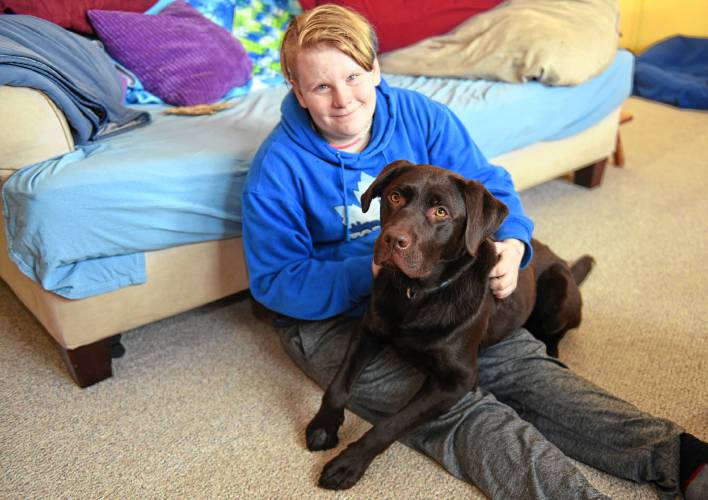
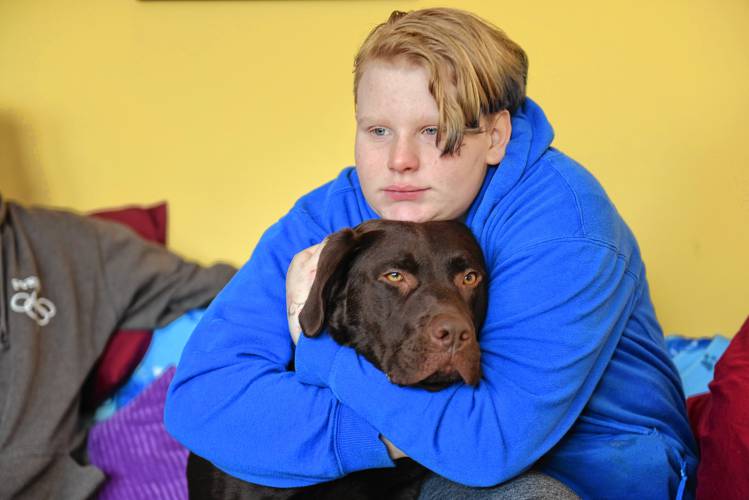
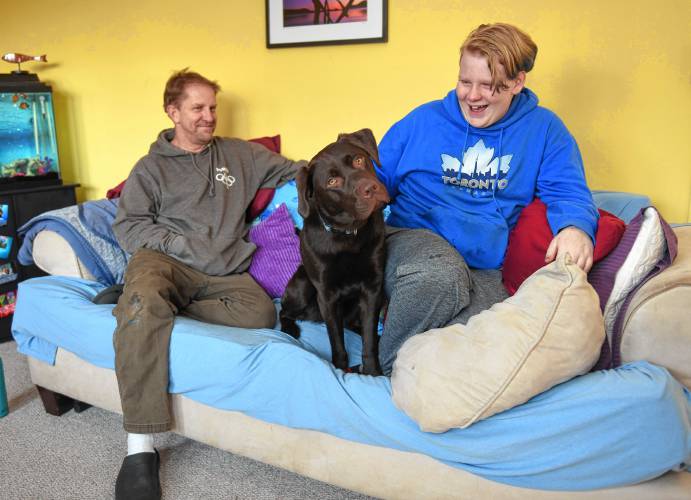
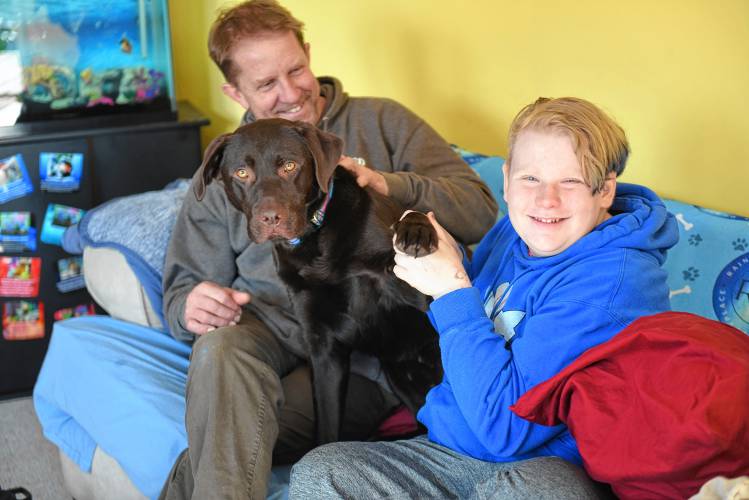
 Speaking of Nature: Bird of my dreams, it’s you: Spotting a White-tailed Tropicbird on our cruise in Bermuda
Speaking of Nature: Bird of my dreams, it’s you: Spotting a White-tailed Tropicbird on our cruise in Bermuda Embracing both new and old: Da Camera Singers celebrates 50 years in the best way they know how
Embracing both new and old: Da Camera Singers celebrates 50 years in the best way they know how Time to celebrate kids and books: Mass Kids Lit Fest offers a wealth of programs in Valley during Children’s Book Week
Time to celebrate kids and books: Mass Kids Lit Fest offers a wealth of programs in Valley during Children’s Book Week Sounds Local: A rock circus returns to Turners Falls: The Slambovian Circus of Dreams brings the fun Friday night at the Shea
Sounds Local: A rock circus returns to Turners Falls: The Slambovian Circus of Dreams brings the fun Friday night at the Shea
